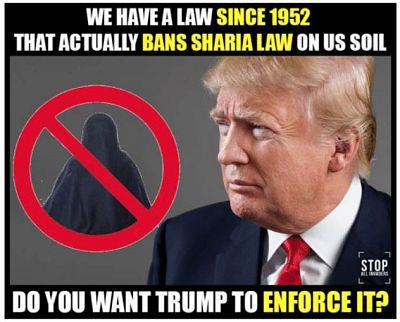The Russians set up 30 Facebook pages targeting the black community, the researchers found, and 10 YouTube channels that posted 571 videos related to police violence against African-Americans.
WASHINGTON — Russian agents who favored Donald Trump's presidential candidacy harnessed the major players of America's tech industry in a sophisticated propaganda effort that was far more extensive that originally understood, according to a detailed analysis prepared for the Senate intelligence committee.
 ADVERTISEMENT
ADVERTISEMENT
 ADVERTISEMENT
ADVERTISEMENT
Researchers combed through millions of posts from Facebook, Instagram, Twitter and YouTube created by the Internet Research Agency, the St. Petersburg-based firm run by a close ally of Vladimir Putin whose key executives have been indicted by special counsel Robert Mueller on charges of defrauding the United States.
Two separate reports on the operation were prepared for senators, both of which were obtained by NBC News. Both sets of researchers found, as Mueller did, that the Internet Research Agency set out in the 2016 presidential election to help Donald Trump and hurt Hillary Clinton, in part by inflaming right-wing conspiracy theories and seeking to engender distrust among — and suppress the vote of — left-leaning groups, including African-Americans.
The Russians set up 30 Facebook pages targeting the black community, the researchers found, and 10 YouTube channels that posted 571 videos related to police violence against African-Americans. YouTube, which is part of Alphabet, the holding company for Google, was not correct when it said in a statement last year that Russian content did not target a segment of U.S. society, the researchers concluded.
The Russians also set up hotlines that encourage people to discuss sexual or other personal problems the researchers found, raising the possibility they could use the information later to blackmail people. Through deceit, the Internet Research Agency recruited many Americans to take various political actions, the researchers found.
The post that drew the most attention featuring Trump emerged after the election, on January 23, 2017 — a conspiracy theory asserting that President Barack Obama had refused to ban Sharia Law and encouraging President Trump to take action. It was shared 312,632 times from a page created by Russian propagandists.
The top post featuring Hillary Clinton came a month before the election, the researchers found — a soup of conspiracy theories alleging that Clinton would win because of voter fraud and alluding to an armed uprising. It received 102,253 engagements, which can be anything
The Washington Post first reported Sunday on a draft of one of the reports, by Oxford University's Computational Propaganda Project and Graphika, a network analysis firm.
The other group, led by New Knowledge, a cybersecurity firm that specializes in disinformation, counted 263,769,228 engagements with internet Research Agency content—including likes, comments and shares— on Facebook and Instagram. They said the total number of people who viewed the Russian-backed content is likely higher than the 126 million people Facebook said were exposed.
New Knowledge faulted U.S. social media companies for failing to come to grips with the extent to which their platforms are being used for foreign propaganda, and the researchers noted that Russian efforts to manipulate American voters continue mostly unabated.
"The Instagram and Facebook engagement statistics belie the claim that this was a small operation — it was far more than only $100,000 of Facebook ads, as originally asserted by Facebook executives," the New Knowledge white paper said. "The ad engagements were a minor factor in a much broader, organically- driven influence operation."
Representatives for the tech companies did not immediately respond to a request for comment by NBC News.
The Russian social media effort, which unfolded alongside a separate Russian intelligence operation to hack and leak Democratic emails, was "intended to reinforce tribalism, to polarize and divide, and to normalize points of view strategically advantageous to the Russian government on everything from social issues to political candidates," the New Knowledge white paper said.
"It was designed to exploit societal fractures, blur the lines between reality and fiction, erode our trust in media..in government, in each other, and in democracy itself."
The U.S. government, the report noted, has done little to understand or deter the use of social media platforms by foreign propagandists.
Some of the key findings in the New Knowledge report:
YouTube was used more extensively than previously known. The IRA began making YouTube videos in September 2015, producing 1,107 videos across 17 channels. A few channels were active until July 2017.
The IRA developed a collection of more than 3,840 persona accounts on Twitter; approximately 1.4 million people engaged with their tweets. They generated 72,801,807 engagements on their original content.
The posts display "a nuanced and deep knowledge of American culture, media, and influencers in each community the IRA targeted." Pepe the Frog memes were used to reach alt-right youth, but don't appear on pages aimed at older conservatives, "The IRA was fluent in American trolling culture."
The IRA impersonated state and local news media on Twitter and Instagram, setting up approximately 109 Twitter accounts masquerading as news organizations, including 44 U.S.-focused Twitter handles that amassed 660,335 followers between them — with an average of 15,000 followers each. The accounts were bots posting like to articles, many of which were bogus.
The IRA simultaneously worked hard to undermine trust in real news media both among left and right-right-leaning audiences.
There were dozens of posts extolling the virtues of Wikileaks and Julian Assange.
Thousands of conspiratorial tweets were advanced or amplified by fake right-wing personas, and included pseudoscience conspiracies about vaccines, paranormal activity and aliens, and anti-anti-Semitic complaints about the "globalist" agenda.
The Russians sought to convey a narrative that the Robert Mueller investigation was corrupt, and that the emerging Russia stories were a "weird conspiracy" pushed by "liberal crybabies."











